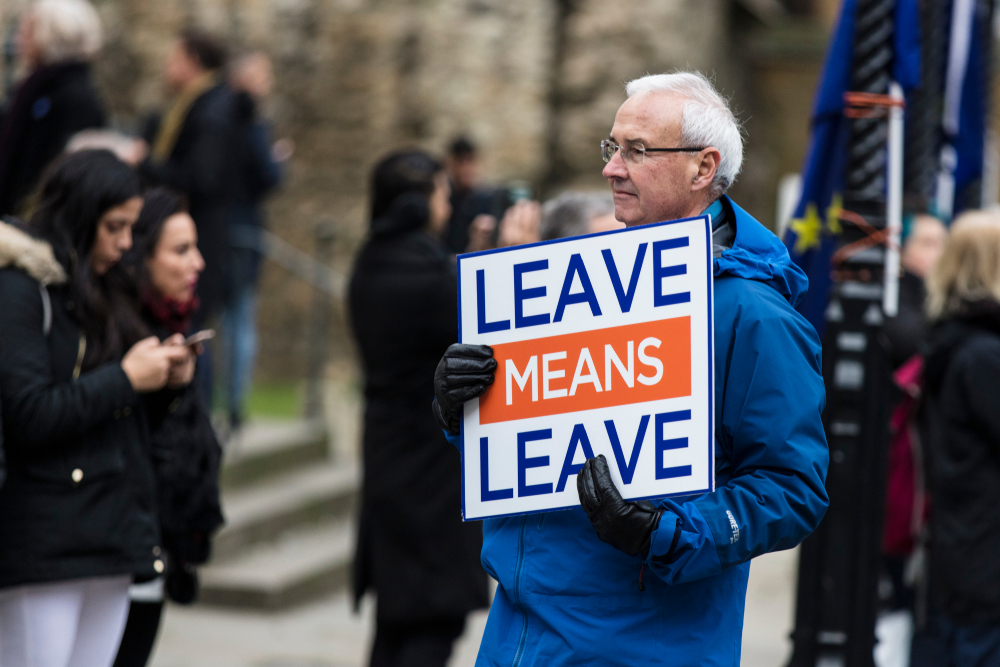
It has been a year since COVID-19 came into existence and changed our lives. People are hopeful that we are able to travel this year now that we are able to manage the infection and vaccines are currently in production.
Adam Schrader, director of operations at Riskline said: “While there is hope that some parts of the world will see the end of the pandemic this year, its effects will continue to be felt in 2021 and beyond. It’s not yet clear the extent of the damage to healthcare systems or how long it will take them – and critically their workforce – to recover. Nor is it known the long-term effects on populations that were denied or postponed critical care or vaccinations for other deadly diseases. What’s likely to be with us well into the future is the accompanying ‘infodemic’ – that virus of misinformation that often overwhelms sound public health messaging.”
Although travel is slowly returning, there are several risks that threaten travel, especially business travel. Knowing these risks will help companies planning and managing employee travel in the year ahead.
Continued impact of COVID-19 on global travel
Even as the global travel industry gradually recovers from the absolute standstill that it experienced through most of 2020, the pandemic’s disruptive and ever-changing effect on the travel ecosystem will certainly continue this year. The desire for countries to limit exposure to COVID-19 will put pressure on travellers to obtain mandatory documentation relating to insurance, testing, pre-approved accommodation and, eventually, vaccination, prior to travel, which imposes additional cost burdens on travellers.

Entry and exit restrictions imposed by governments or their assessment of the COVID-19 situation in a traveller’s country of origin change at short notice, further complicating global travel. Travellers in most countries should continue to expect measures such as health screening, quarantine and testing, socially distanced seating arrangements and contactless check-ins or transactions at airports, major public transport hubs, hotels and other facilities. Expect renewed lockdowns in high-risk areas and a reduction in capacity for transportation services of all kinds to be the new norm in 2021.
Severity of natural disasters
Due to climate change, the effects of natural disasters, such as tropical and winter storms, wildfires and monsoon rainfall in 2021 will continue to be more severe and emergency services personnel will be unable to respond to them in a timely manner in countries grappling with a new wave of COVID-19 infections. The trend will be similar when natural disasters hit countries this year, as emergency services are still understaffed and stretched thin and most resources have been allocated towards tackling the COVID-19 outbreak.
Countries, particularly at risk from natural disasters amid an outbreak during 2021, include the United States (US), Italy, Kazakhstan and Russia, during the winter storm season (January-March); the US, Brazil, Greece and Indonesia (April-August), and Australia and New Zealand (January to April) during the wildfire season; and India, Bangladesh, Vietnam, Thailand, Philippines, China and Pakistan during the cyclone and monsoon seasons (May-November).
Overburdened health systems
The COVID-19 pandemic has pushed most health systems to their limits, exposing long-standing gaps in public health infrastructure and healthcare in many countries. A World Health Organisation (WHO) study from 105 countries indicates that some 90% of countries experienced disruptions to essential healthcare services, with low- and middle-income countries reporting the greatest difficulties during the COVID-19 pandemic. Routine immunisation, diagnosis and treatment of non-communicable diseases, cancer and malaria, as well as family planning, contraception and treatment for mental health disorders have been the most affected.

Distressingly, emergency services also experienced disruptions in many countries. The pandemic will continue to test the ability of health systems to withstand shocks while maintaining routine functions and mitigating downstream health effects into 2021 and beyond, with Somalia, Central African Republic, South Sudan, Afghanistan, Yemen, Syria, Chad, Niger, the Democratic Republic of Congo, Mozambique, Sudan, Cameroon, Libya, Iraq, Nigeria, Uganda as well as Ethiopia, Eritrea, Haiti and Papua New Guinea among the countries with the weakest capacity to cope with the added burden of the pandemic.
Social unrest caused by anti-austerity measures/COVID-19 restrictions and vaccine deployment
In October, the International Monetary Fund (IMF) estimated that the global economy will shrink by approximately 4.4% in 2020, due to the COVID-19 pandemic. The effects of this recession will continue to be felt this year, even with the deployment of a vaccine. Lower tax receipts and ballooning public deficits are likely to force governments across the world to implement painful austerity measures, including cuts to social programmes and unemployment benefits. These actions carry with them the potential to trigger popular unrest led by activist organisations such as the Yellow Vest (Gilets Jaunes) movement in France and the People’s Assembly Against Austerity in the United Kingdom (UK). Right-wing organisations, in particular, have increased their visibility and membership in the United States (US), Canada and Europe to protest COVID-19 restrictions, and will likely turn their attention to castigating vaccination campaigns and seeking the ouster of incumbents on all sides of the political spectrum. Disinformation to engage a wide coalition of low-information voters will proliferate and bring together loose coalitions of wildly divergent but “populist” factions.
Iran and tensions in the Middle East

Tensions between Iran and Israel, its Gulf Arab rivals – especially Saudi Arabia – and the United States (US) reached new heights in 2020 with the assassination of Major General Qasem Soleimani in January and the country’s top nuclear scientist, Mohsen Fakhrizadeh, in November. Iran has vowed to avenge both deaths, and its parliament approved a bill to suspend United Nations (UN) inspections of their nuclear program. Meanwhile, Israeli authorities have warned their own nuclear scientists and citizens to exercise increased caution in anticipation of possible attacks. A direct Iranian retaliation on US interests is unlikely but the government will continue to develop its nuclear capabilities and support allies and proxies in Lebanon, Palestine, Syria, Iraq and Yemen. Iran’s ability to retaliate has been hampered by the impact of the COVID-19 outbreak on an already ailing economy, and while a delayed response is expected this year, much will depend on the policy taken by Joe Biden towards Iran, Israel and the Gulf Arab states.
Destabilisation of the Horn of Africa region
On 28 November 2020, Ethiopian Prime Minister Abiy Ahmed declared victory over the Tigrayan People’s Liberation Front (TPLF) after federal forces captured the regional capital, Mekelle, following a near-month long conflict in the northern Tigray region. The conflict has exacerbated ethnic tensions within Ethiopia, spilled over into Eritrea – where TPLF forces have already fired rockets towards Asmara – and triggered the displacement of tens of thousands of Tigrayans across the Sudanese border. A protracted guerilla insurgency is increasingly likely in the months ahead after TPLF leaders pledged to continue fighting, and the prospect of disintegration and civil war looms as further fighting threatens to draw other regional states into the conflict. Finally, the wider Horn of Africa region is at an increased risk of destabilisation as the conflict could further spill over into neighbouring states, including Eritrea, Sudan and Somalia, and worsen existing humanitarian, security and political challenges in these countries.
Global political uncertainty amid a post-Brexit UK and post-Trump US

On 1 January 2021, the United Kingdom completed its year-long transition period following the country’s exit from the European Union (EU) and the effects will be just one of the several uncertainties to watch out for this year. While Democrat Joe Biden’s victory in the 2020 United States presidential election generated optimism, he will have big challenges ahead in economic recovery and fighting the COVID-19 pandemic. Countries will have to consider whether the reversal of many of the Trump administration’s actions by a Biden administration will not simply be reversed should a Republican be elected in 2024, and plan accordingly. France, with a presidential election approaching in 2022, will likely be the focus of US attention, more so than the UK. While a Biden administration will shore up alliances, countries will enter into regional blocs less dependent on the US in the event of further political turmoil. NATO will, in particular, have to address the Turkish elephant in the room as President Erdogan continues to insert himself in the domestic politics of other European member states and engage in military adventurism across the Middle East and Southern Caucasus. Additionally, Asia-Pacific partners such as Taiwan, Japan, South Korea and Australia, will demand greater attention to deal with an emboldened People’s Republic of China.
Rise in violent crime in developing countries
An increase in crimes, such as carjacking and burglary, is expected in developing and semi-developed countries, whose governments are unable to provide adequate financial aid and other forms of relief amid the economic downturn triggered by the COVID-19 pandemic. As the pandemic rages on and the economic strain grows, criminal groups will likely have bigger recruitment pools, particularly among adolescents due to the closure of schools and universities and the lack of job opportunities. Due to this, incidents of violent crime will likely increase in countries that already experience high crime rates, such as Venezuela and South Africa. A rise in opportunistic crime, such as looting and muggings, may occur in countries such as Egypt, where organised groups do not normally operate.



 share
share







































